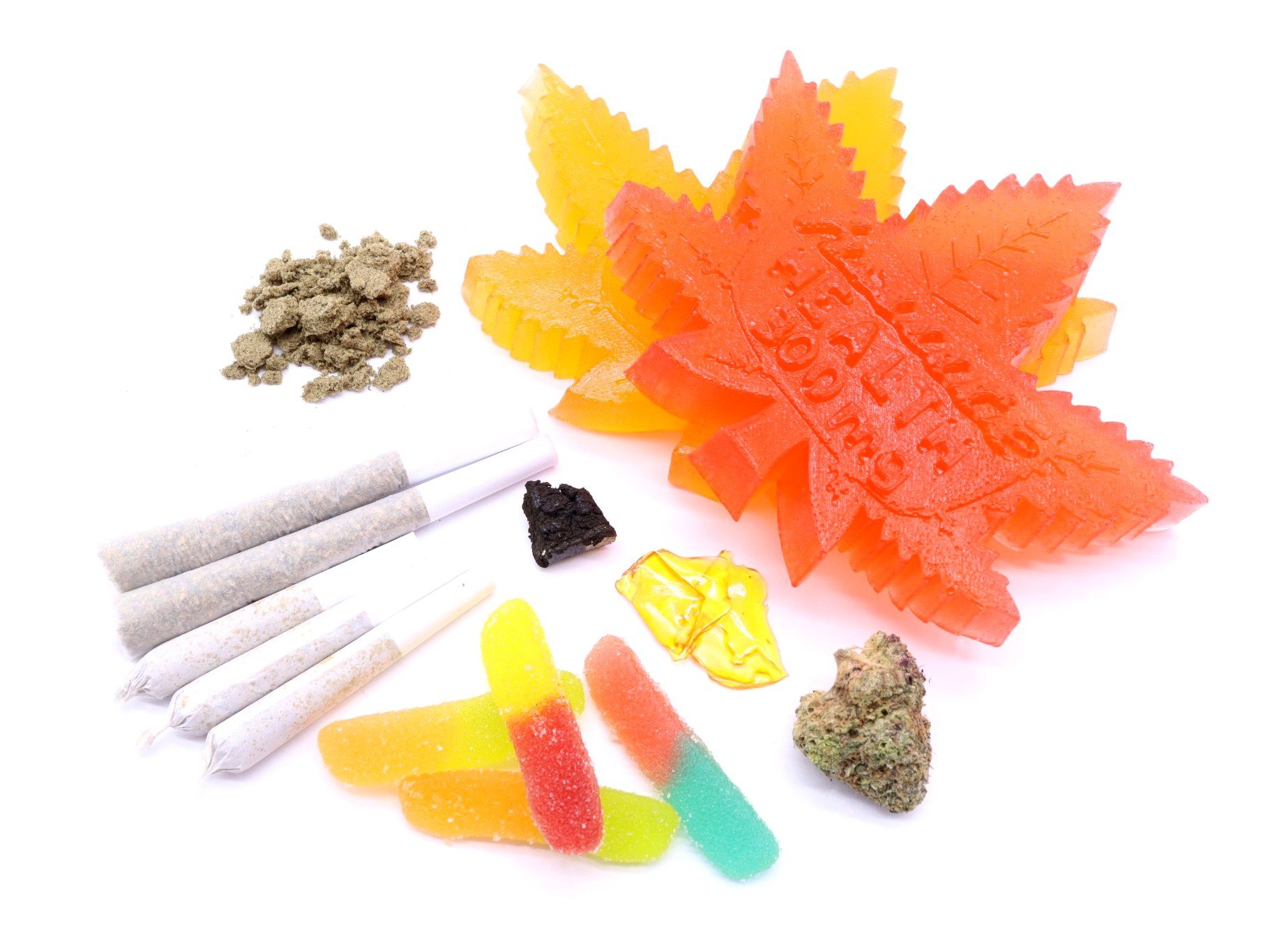How well do you get along with your cousins? Do you even have cousins? How similar or different are you from your closest relatives? Family can often be the most complicated or the most joyful parts of our lives. Some people are incredibly close to their aunts, uncles and cousins while others could care less for those weirdos they just happen to share genetics with. In the cannabis family tree – the Cannabaceae genus, to be exact – cannabis and hemp have had a tumultuous relationship over many eons.
If you weren’t already aware, cannabis, hemp and hops are some of the more noteworthy members of the species group we call Cannabaceae. Cannabis – of which hemp is a close relative – and humulus – including hops – and several other Celtis plants like hackberries and some smaller trees comprise this interesting mix of a family group. Hops obviously is famous in its own right, but hemp and cannabis have both taken the spotlight in recent years as both of these species in their multiple varieties are becoming legalized all over the globe.
Cannabis and hemp were both rendered illicit substances with their controversial inclusion in the Act to Prohibit Opium & Other Drugs back in the early 1900’s. Both plants were thrown in with the lots of some serious criminal commodities like opium, cocaine in addition to a number of psychedelics that many people had been using for cultural, spiritual or medical reasons for centuries. The same could be said for both hemp and cannabis. With those dark days of prosecution hopefully behind us, it’s safe to say that there is still a lot of stigma surrounding these famously infamous wonder weeds.
Why is hemp federally legal in the United States, and why is cannabis now legal across the nations of Canada and Mexico? The reason hemp has been receiving so much attention across the world in comparison to cannabis has to do with those compounds you’ve probably heard so much about: THC vs CBD. Tetrahydrocannabinol (THC) has a number of potential benefits to your health & wellbeing, but it has this annoying habit of making you feel high. This isn’t a problem for many people, but when it comes to government regulators and medical professionals they’re not willing to support something that can have a wide variety of mind-altering effects on people.
This is where CBD (Cannabidiol) has truly taken the lead. CBD can have many of the same positive impacts such as fighting pain, reducing inflammation, aiding sleep, balancing mental states, easing nausea and much more. On top of all these health benefits, CBD is non-psychoactive – meaning it has no associative “high”. Not only is this a big feather in CBD’s cap, it can actually work to reduce the brain-addling effects of THC if you combine the two in certain concentrations.
THC has a strong foundation to stand on when it comes to benefits for your mental & physical health. That being said, we understand that many people are either concerned about ingesting this kind of mind-altering phytocompound or their job/career does not allow them to do so. Whatever the case may be, a growing number of people are turning to hemp-derived CBD products for a multitude of reasons.
What are the benefits of using hemp CBD products? What kinds of hemp-derived CBD or hemp strain products are there? Should you invest in hemp CBD, cannabis products or both? Let’s run through the fields of hemp and uncover some of the tips & tricks for getting the most out of your CBD.
#7 TRY EM ALL!
One of the best pieces of advice for any newbie hemp CBD users is to not limit yourself to any singular product type, brand or dosing method. Hemp-derived CBD comes in so many forms, such as:
● Hemp CBD oil
● Hemp CBD oral sprays
● Hemp CBD capsules or gummies
● Hemp-derived CBD edibles & beverages
● Topical hemp CBD products (creams, salves, gels, roll-ons, lotions, shampoos, etc)
Cannabidiol can easily fit into your daily routine as there are so many unique ways to take it. If you’re on the gummy-craze train then why not take a couple hemp CBD gummies to start your day stress-free? Perhaps the dosing control and tasteless nature of hemp CBD oil is more suited to your lifestyle? Have an itch or a sore spot on your skin? Some hemp-derived CBD creams might provide the relief you need.
People often find a kind of product or brand they enjoy and only stick with that CBD experience. This can work great for a period of time, just don’t hesitate to diversify your hemp CBD product portfolio – especially in the early days when you’re experimenting with your doses. Sometimes the best thing you can do for your success with hemp CBD is to mix it up and try a different kind (isolate, broad-spectrum or full-spectrum) or switch up the formulation (organic, flavored, nutritional, etc).
#6 CHECK FOR QUALITY
There are a lot of different manufacturers for hemp CBD, but not all are created equal. The hemp CBD boom that has exploded all over North America and parts of the world means there’s so many choices for brands. This is a step in the right direction, however, this also means that there’s a lot of ‘filler products’ that offer cheap products whose prices reflect their poor ingredients or inconsistent qualities.
How can you be sure of a brand’s inherent quality? Products that have been quality tested or guarantee a certain level of quality will have certifications available on their website (certified organic, 100% natural, GMO free, pesticide free, etc) in addition to badges/icons present on their packaging.
Additionally, there are certain processes that only the highest quality hemp-derived CBD products undergo during their production. You can find out more about how hemp CBD is made in this insightful article we’ve already posted. Testing is also very important, but we’ll discuss that in the next essential tip for buying hemp CBD products.
#5 IS IT TESTED?
Speaking of testing, hemp CBD products absolutely must be tested on a regular basis. Not only are product analyses essential for maintaining quality, consistency and potency but these tests are actually mandated by governments. One of the characteristics of hemp CBD that makes it so widespread these days is the lack of THC contents inherent in many hemp plant crops. On average, the general rule for a hemp CBD product to be saleable requires it to have less than 0.3 percent of THC (Tetrahydrocannabinol).
These parameters are commonly accepted around the globe as being a truly definable property of what makes a product hemp-based vs cannabis-based. So, the first thing you want to check for when buying hemp CBD is the less than 0.3 percent THC contents, followed by the CBD potency itself. Other tests and analyses check for the presence of GMOs, pesticides, chemical residues, or other detracting inputs that are important to avoid for health reasons. Today, a lot more CBD producers are also double- and triple-checking their products for terpenes, full-spectrum cannabinoids and other quality-enhancing elements. Be sure to browse the hemp CBD section online or at your local retailers with an eye for these kinds of available tests – and if a company doesn’t offer analyses up-front, a simple email request can usually net you the latest results.
#4 SOURCING MATTERS
Where the hemp crops are grown, how they’re cultivated and what kind of quality controls/assurances are established will also go a long way towards getting you the right hemp CBD products. ‘100% American Grown Hemp’ or ‘Canadian Farmed Hemp’ kinds of badges of honor can indicate certain levels of quality and consistency.
Hemp is known to grow quite quickly and is a robust crop that can withstand environmental changes, pests and exhibits strong genetics more often than not. Hemp-derived CBD and the hemp products made from these vibrant plants is therefore a reflection of how they’re cultivated. To make sure you’re getting the best in hemp CBD make sure the products you invest your money in have the kinds of industry-best practices top of mind. Sometimes it’s not what you grow, it’s how you grow it that matters most.
#3 TO FLAVOR, OR NOT TO FLAVOR?
The presence of flavors and aromas in your hemp CBD products will likely depend on what kind of product it is. Gummies, edibles and some oils/oral sprays are usually flavored with citrus, mint, vanilla, berries, chocolate or some combination of pleasing scents and tastes. Capsules, topicals and medical-grade hemp CBD oils are typically odorless and/or tasteless.
How important is the sensory experience of a product to you? Consider that some flavors or additives might not be the best for your health as they only serve to make something palatable. On the flip side, sometimes flavors or aromas are the product of nutritional ingredients like with hemp CBD supplements (CBD + superfoods/greens, hemp CBD protein powder, CBD-infused vitamins, etc).
You have to decide how essential flavors/aromas are for your hemp CBD experience. We’re of the mind that flavor doesn’t matter so much, but when it comes to full-spectrum vs isolated forms of hemp-derived CBD then that’s another matter entirely (more on full-spectrum CBD next).
#2 FULL-SPECTRUM IS BEST
Following our train of thought, the debate over what forms of CBD are best continues to rage on. Many people are anti-THC or concerned with the ramifications of consuming it as part of their daily routine. These same folks would likely prefer the safety & assurance that a hemp CBD isolate product would offer, as this kind of product contains CBD-only extracts (i.e. THC free).
Conversely, broad- and full-spectrum hemp CBD products contain most if not all of the resident cannabinoids, terpenes and flavonoids that the plant has to offer. These formulations don’t separate cannabinoids but instead double-down on the potential benefits of combinations of hemp’s active compounds. Concepts like the ‘entourage effect’ hint at the collective powers of cannabinoids and how they can boost one another’s effectiveness when consumed/absorbed together.
We certainly advocate the advantage of full-spectrum hemp strains products and hemp-derived CBD. Why not get more of the good stuff if you have the option? Full-spectrum hemp CBD and full-spectrum cannabis products are gaining a lot of traction with both consumers and producers these days, so pay close attention as more information becomes available on the benefits of full-spectrum products.
#1 DOSAGE DO’S & DON’TS
Last but not least is the importance of dosing properly. Dosages can make or break your hemp CBD product experience, especially if you’re not being careful to manage your doses. Some tips & tricks for getting the most out of your daily doses of hemp CBD:
● Start low and go slow!
● Build your dose up slowly as fits your needs, don’t increase your dosage just for the sake of it
● Pay attention to how CBD is making you feel (be mindful, listen to your body)
● Don’t up-or-down your dosage too much, too frequently (consistency is king!)
● When switching to a new product type, start with a low dose and increase slowly (again)
● Brands can affect you differently – just because two product have similar potency values doesn’t mean it will yield the same results
● Record/track your dosing progress to make sure you’re getting the best results
● When in doubt, start fresh! (New product, new dose, new frequency)


